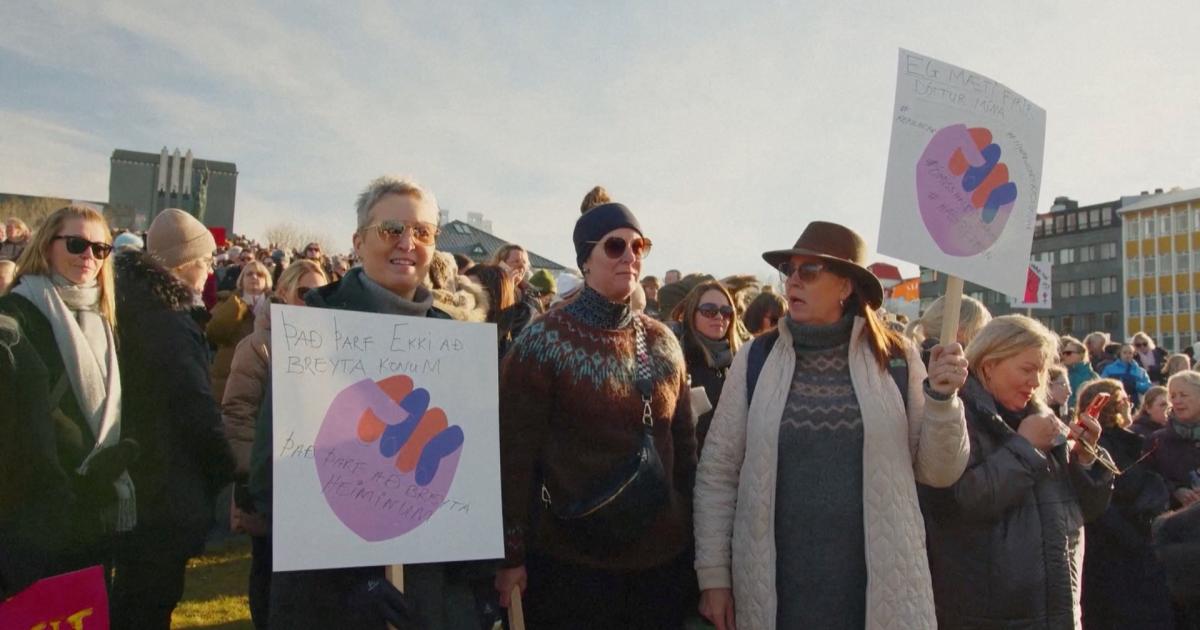Prime Minister Katrín Jakobsdóttir and some of her ministers went on strike along with tens of thousands of Icelanders.
“This day is for all women in Iceland,” said one of tens of thousands of striking residents of the island nation in a TV interview on Tuesday. She’s lucky herself; she works in a company where she gets paid the same as her male colleagues. “But I’m here for my daughters. And all the other women.”
“Land of Equality”
Iceland is considered the “land of equality”. This year it ranked first for the 14th time in the global ranking of equality between men and women published by the World Economic Forum (WEF) – Austria fell 26 places to 47th place. According to this index, Iceland has 91.2 Percent of its gender gap closed, 100 percent would be complete equality.
Iceland’s progressiveness is actually remarkable compared to other countries: more than two fifths of the ministers and parliamentarians are female. Technical professions are carried out equally by women and men. And around 90 percent of fathers take parental leave.
Wage gap and violence
“This has led many to believe that equality has been achieved,” Sonja Ýr Thorbergsdottir, who heads the public sector trade union federation BSRB, was quoted as saying by the media.
And that’s not the case. There is still room for improvement in Iceland, particularly when it comes to the gender pay gap and violence against women. To draw attention to this, numerous women stopped work for 24 hours – both paid and unpaid. The motto: “You call that equality?”
Some kindergartens, schools, shops, banks and other facilities had to remain closed for the day due to a lack of staff. On this day, household chores, care and childcare were, for a change, the sole responsibility of men in many families.
Reminiscent of protests in 1975
The event was reminiscent of the legendary women’s strike in Iceland 48 years ago, in 1975 – a time in which the everyday and unpaid work of many women received little recognition in society. At that time, more than 90 percent of Icelandic women took part in the strike.
Just one year later, a law was passed that guaranteed women the same rights as men. There have been a few women’s strikes since then, but Tuesday’s was the first 24-hour strike since 1975.
The left-green head of government Katrín Jakobsdóttir and some of her ministers also took part in the protest. In an interview she said: “We are still dealing with a gender pay gap that is unimaginable for 2023.” There is a difference of around ten percent – around 16 in Austria.
